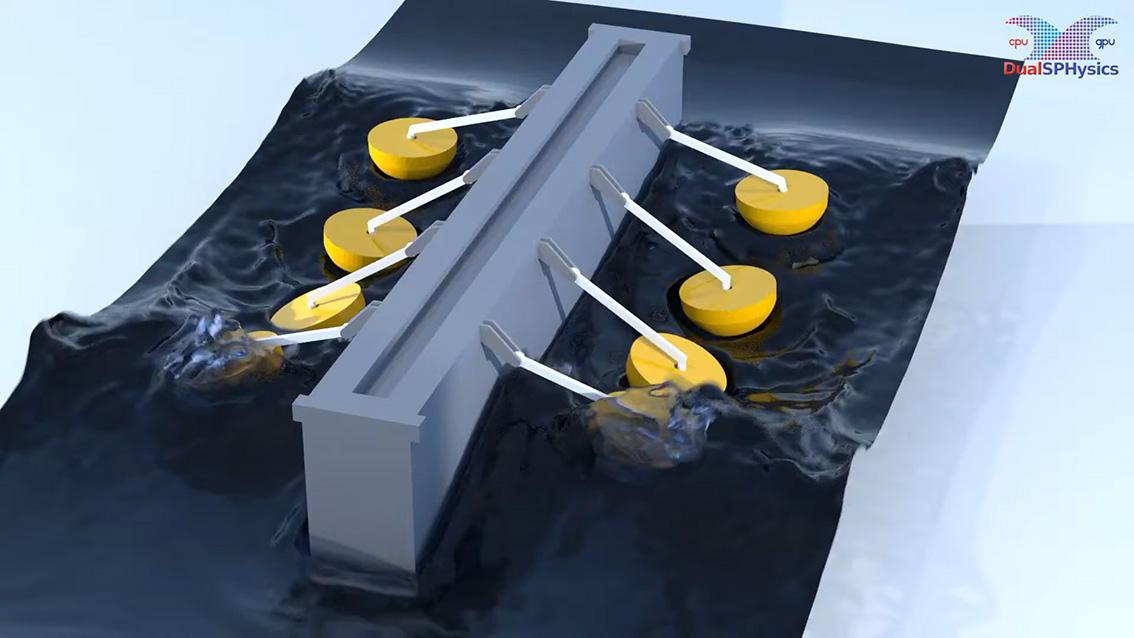Investigating the acceleration of marine energy simulation tools
29 August 2023
The University of Edinburgh’s five-year Chancellor’s Fellowships support interdisciplinary research and innovation. Joe O’Connor, who has joined EPCC as our second Chancellor’s Fellow, describes his work.
The main focus of my Fellowship is to accelerate current simulation tools for marine energy systems (eg wave energy converters). Smoothed particle hydrodynamics (SPH) is the current state-of-the-art for simulating such applications, thanks to its meshless formulation which makes it ideally suited to violent free-surface flows (eg breaking waves) and wave-structure interactions. However, SPH is also more costly than traditional mesh-based computational fluid dynamics (CFD) methods. Because of this, SPH has found limited use in typical engineering workflows (eg design optimisation, uncertainty quantification, optimal control). Therefore, there is a need to accelerate SPH.

Image shows a smoothed particle hydrodynamics simulation of a wave energy converter using the open-source code DualSPHysics. See https://www.youtube.com/watch?v=JeD89PMiLLQ.
One approach to acceleration is low-fidelity surrogate models that approximate the high-fidelity SPH but are much cheaper to compute. The recent boom in machine learning has led to a string of developments in data-driven surrogate modelling. However their application to SPH is essentially non-existent. Another approach to acceleration is high performance computing (HPC). For example, low-cost surrogate models for SPH will enable new areas of research in novel parallel computing strategies (eg parallel-in-time). These mixed-fidelity methods have the potential to combine the efficiency of low-fidelity surrogate models with the accuracy and robustness of high-fidelity SPH.
Delivering impact
While the focus of this Fellowship is method development and acceleration, the ultimate aim is to apply these methods to real-world problems. Marine energy is an ideal application where this research can deliver significant impact.
A successful Fellowship will enable larger, longer, and more detailed simulations of marine energy applications, as well as unlocking previously intractable engineering workflows. Ultimately, this will improve design capability and enhance progress towards digital twinning technology. My research relates to many of the areas targeted for the transition to exascale and will also contribute towards the UK’s Net Zero Strategy.
EPCC is the perfect place for this investigation, with world-leading expertise in HPC, data science, and computational modelling, as well as significant experience of leading national projects relevant to this work. This Chancellor’s Fellowship presents a unique opportunity to combine my own skills and experience with world-leading expertise in EPCC to help address an important global challenge problem. And, as one of the developers of the leading open source SPH codes in the community (DualSPHysics), I will be aiming to make the outputs of this research available as open source to maximise its impact.

